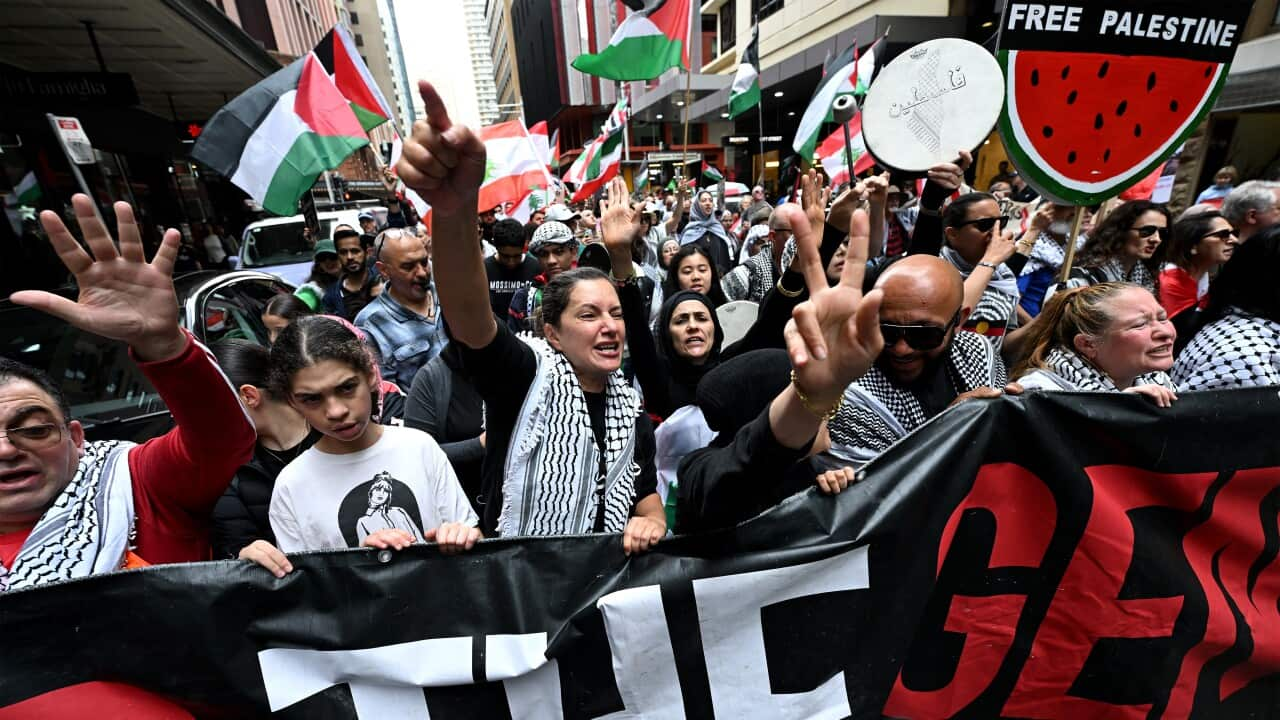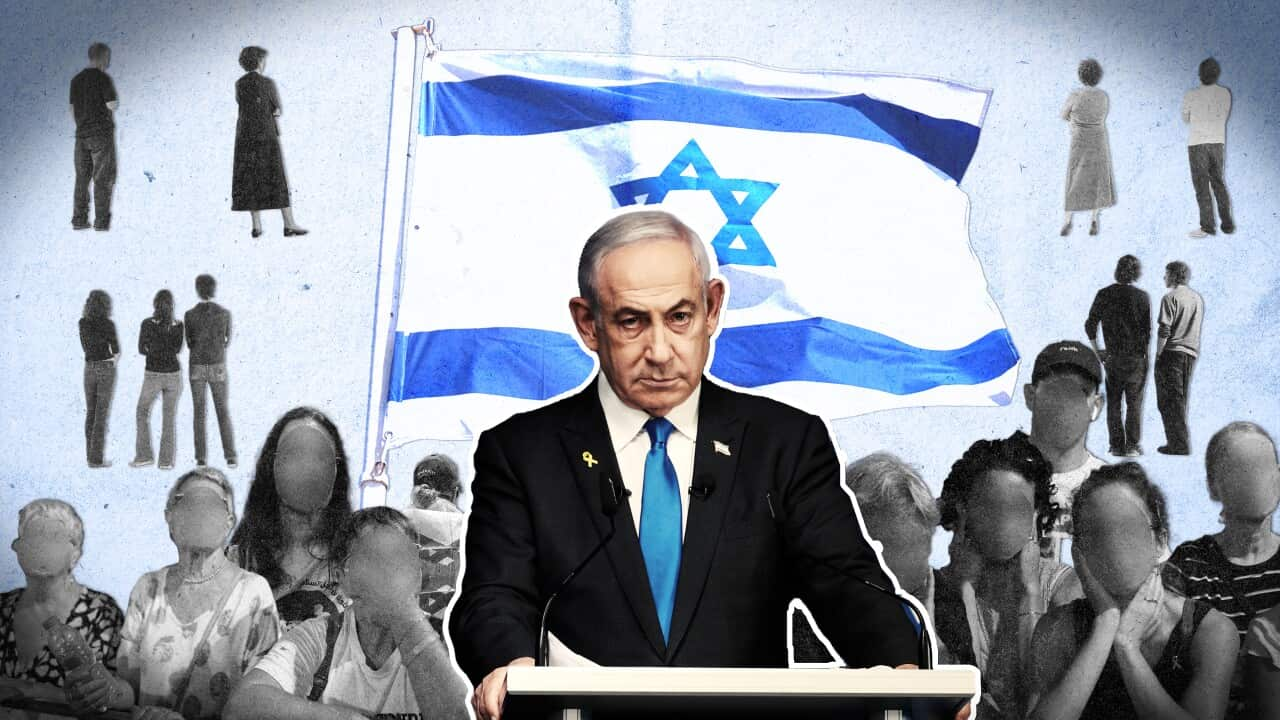Prime Minister Anthony Albanese has criticised planned protests that will mark the year-long Hamas-Israel war, and has .
Albanese's criticism came after The Guardian reported on Tuesday night that NSW Police had applied to the state's supreme court to prevent two events organised by the Palestine Action Group — a protest on 6 October and a vigil the following day — over safety concerns. NSW Premier Chris Minns has backed the decision.
In a statement posted on social media, PAG said it had been organising "peaceful rallies for 51 consecutive weeks" and described NSW Police's application as an "attack on fundamental democratic rights".

Prime Minister Anthony Albanese said he encouraged "appropriate moderation" to those considering attending the rallies. Source: AAP / James Ross
The Greens were also critical of the move, with Senator David Shoebridge saying the protests had been "overwhelmingly peaceful" and gave people the opportunity to "come together to mourn their loved ones and call for the end of violence".
"It’s a deeply anti-democratic move," he wrote on Twitter.
'Not a time to raise the temperature'
Protests in Sydney require a permit, but this system does not exist in Victoria.
Victoria's Assistant Minister Danny Pearson said pro-Palestinian protesters should "think twice" about holding rallies, for which Victoria Police has confirmed it will have a presence.
Albanese said he encouraged "appropriate moderation" to those considering attending the rallies.
"I understand that, for many Australians with family, be it in Israel, the occupied Palestinian territories, or in Lebanon, this is a very difficult time," Albanese said.
"It's not a time to raise the temperature. It's a time to try to make sure that social cohesion in Australia is valued."
"So October 7, I think, is not a time for demonstrations to occur. Because it will be perceived as — whether that’s the intention or not — being something that is less than an appropriate commemoration of the atrocities that occurred on October 7. And it will do nothing to advance the cause."

Pro-Palestinian protesters march in Melbourne on Sunday. Source: AAP / James Ross
7 October marks a year since militants led by Hamas — the rulers of the Palestinian enclave Gaza — launched a surprise attack on southern Israel. They killed about 1,200 people, according to Israeli tallies, and took more than 250 people hostage.
More than 41,000 Palestinians have been killed in Israel's subsequent Gaza offensive, according to the local health ministry, and the territory has been plunged into a deep humanitarian crisis.
Fears of a regional conflict have also soared after which is an ally of Hamas and Iran — in an airstrike on Hezbollah's central command headquarters in Beirut on Friday.
Increased fighting between Hezbollah and Israel over the past two weeks has seen more than 1,000 Lebanese killed and some 6,000 injured, according to Lebanon health authorities.
Anthony Albanese 'condemns' Iran's actions
Iran had warned of Israel's "destruction" and on Tuesday (local time) launched a volley of missiles on Israel, with Israeli Prime Minister Benjamin Netanyahu vowing to retaliate. Most of the missiles were shot down by Israel's Iron Dome air defence system.
"We're very concerned about Iran's actions, which is why we condemn them," Albanese said on Wednesday as he reiterated calls for a ceasefire and de-escalation of conflict.
"There's been too much loss of life in that region.
"Israel, of course, has a right to defend itself, what we have called for consistently is for a de-escalation."
Opposition leader Peter Dutton said Australia needed to stand with Israel as "an important ally for us" but deflected a question on how far Israel's right to self-defence should extend, saying it was a matter for them.
Some have decried the federal government's response as inadequate or "weak" as it failed to use the same language condemning the attacks as it did for those that targeted Israel.
But the focus has been on a small number who waved Hezbollah flags and pictures of its assassinated leader at the protest, with the Australian Federal Police (AFP) investigating the situation under anti-terror laws.
AFP deputy commissioner Krissy Barrett said she was "confident we would have matters to put before the court as a result of our investigations" into the Melbourne protests.
With the Australian Associated Press.










